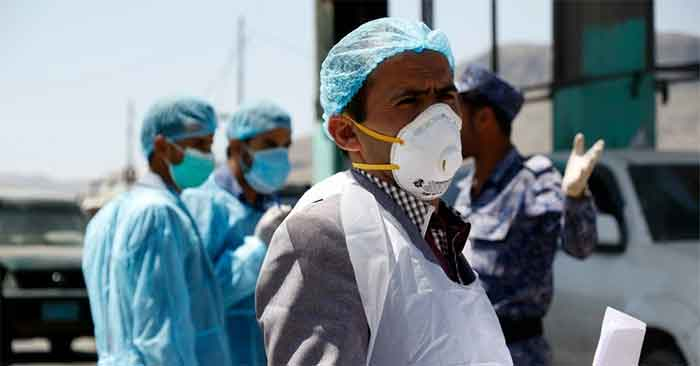The war in Yemen—the Arab world’s poorest country—has reached new heights of sickness and death by the spreading of the coronavirus pandemic in a vulnerable and fragile population. The death toll from the coronavirus pandemic could be greater than the combined toll of war, disease and hunger over the last five years, according to Lise Grande, the U.N.’s head of humanitarian operations in Yemen.
The country’s civilians have been the unwilling participants in a proxy war that has cost hundreds of thousands of lives and has left the public health system in shambles. Last December, the United Nations Office for the Coordination of Humanitarian Affairs (OCHA) stated that the conflict in Yemen has claimed over 233,000 lives over the last six years, either directly due to the conflict or for causes related to it, calling this number “unfortunate and unacceptable.”
The conflict started in 2014 when Iranian-backed Houthi fighters seized Sana’a, Yemen’s capital, and much of the north of the country. The Houthis were confronted by a U.S.-backed Arab coalition led by Saudi Arabia and the United Arab Emirates (UAE) in a bid to bring back Yemeni President Abed Rabu Mansour Hadi (who had been forced to resign) to power, without success. Since 2017, Hadi has reportedly been living in Saudi Arabia.
The effects of the war on the civilian population have been deepened by floods that have ravaged huge areas across the country, facilitating the spread of cholera and other waterborne diseases. Since January 2019 there have been over 2,500,000 cholera cases, 12-15 percent of them severe. As the medical situation further deteriorates, the humanitarian response has become more difficult.
Children have been the most affected by the conflict. For the past three years, 25 percent of civilian casualties have been children, according to statistics from Save the Children. What makes this situation even more dire is that children die either directly from the conflict or from entirely preventable causes.
The Saudi-Emirati-led coalition has placed severe obstacles to medical imports, depriving the Houthi-run public health system of critical medicines. This has proved deadly for patients on emergency care who rely on life-saving medical supplies. Houthi forces have been accused of stopping humanitarian cargo trucks, and holding them for days before allowing them to continue.
Public health personnel and hospital facilities have been attacked, leading to the closure of health facilities. This has further hindered the proper delivery of health care. Physicians for Human Rights (PHR) has consistently denounced those abuses. To make matters worse, 92-95 percent of medical equipment in Yemeni hospitals and health facilities no longer functions, according to that organization.
The situation is particularly dire in rural areas, which already lack the essential resources minimally available in the cities. UNICEF reports 20 million out of the country’s 30 million people currently rely on food assistance. However, the coronavirus pandemic has made the delivery of food even more problematic.
Countries from both sides of the conflict (Iran on one side and the United States, UK, France, Saudi Arabia and the UAE on the other) have the humanitarian responsibility to redress this situation. In 2018, U.N. Secretary General António Guterres called it “the worst humanitarian crisis in the world.”
There is something wrong when the richest Arab countries team up with leading democracies to bomb thousands of civilians and ravage the poorest country in the Middle East. Horrified by the loss of 323 young Argentinean lives during the sinking of the Belgrano cruiser by the British during the Malvinas/Falklands war, Bruce Chatwin wrote, “I cling to the archaic idea that unjustifiable killing in peace or war eventually rebounds on the killer. The dead do haunt the living. There is such thing as blood guilt.” The same words could be applied to those responsible for the war in Yemen today.
 Eurasia Press & News
Eurasia Press & News




